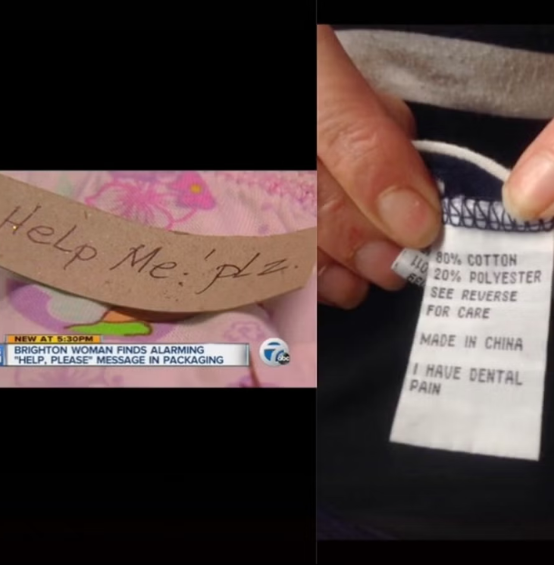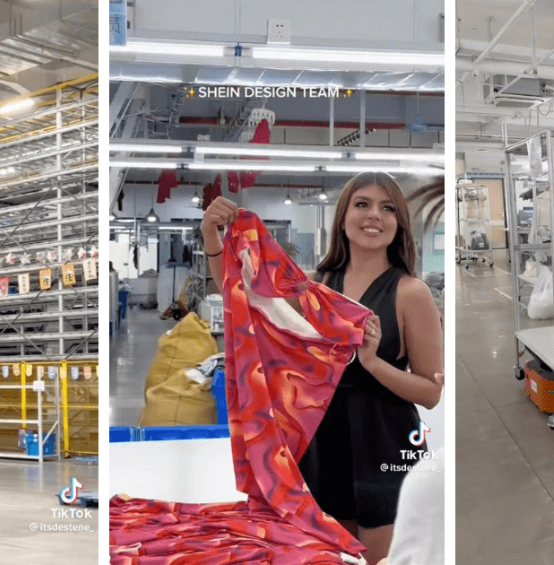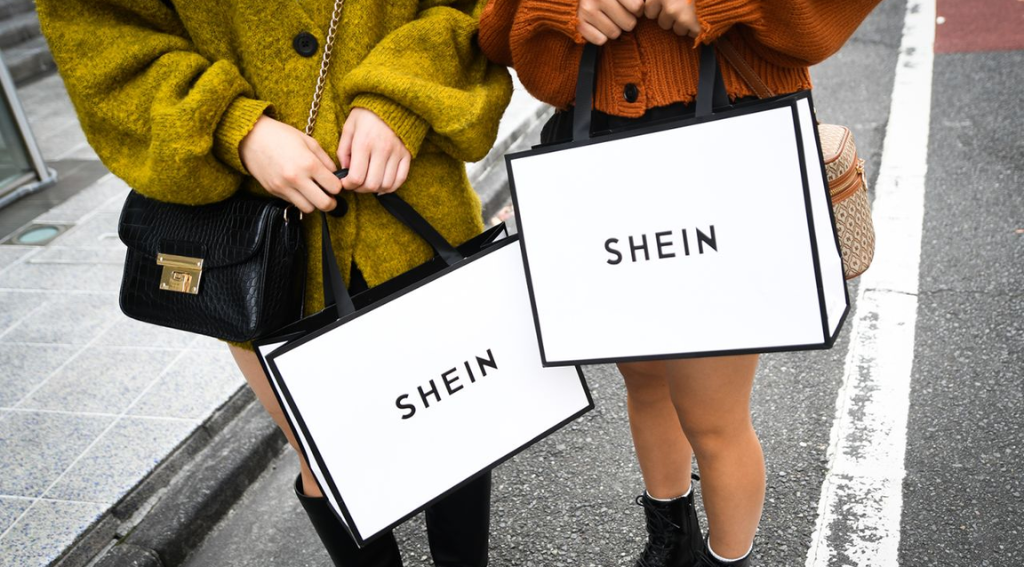If you are wondering, is Shein fast fashion, why is Shein bad for the environment, and does Shein use child labor, read on to find out more about the largest online-only fashion retailer in the world. In this deep dive, we explore the multiple Shein greenwashing allegations, its environmental impact, and whether or not Shein uses sweatshops and child labor. So let’s get into it.
Is Shein Fast Fashion, Ethical or Sustainable?
If you’ve been keeping an eye on the recent TikTok and Instagram hauls, it’s evident that Shein, the biggest fast fashion brand in 2023, has dominated the feeds of numerous popular influencers. In fact, the #SHEINhaul videos on TikTok alone have amassed an impressive 8.7 billion views. The brand’s widespread influence in the social media sphere is hard to overlook. But, how did Shein come to be? What drove its immense online success? The answer is painfully simple.
How Shein Started as a Fast Fashion Brand?
Established in 2008 and based in Jiangsu, China, Shein stands as an online marketplace renowned for its ultra-fast fashion business model. The company boasts a wide array of products, ranging from apparel and beauty items to accessories and home goods. Leading the enigmatic empire is Xu Yangtian, better known as Chris Xu, a billionaire shrouded in mystery. Despite his staggering net worth of $23.5 billion, information about him and his personal life remains scarce.
In a remarkably short span, this Chinese e-retailer has achieved the feat of surpassing industry giants like Nike and Adidas, becoming the most-Googled clothing brand. What started as a low-cost Chinese clothing brand rapidly transformed into a global, online-only fashion powerhouse, witnessing an astronomical surge in sales from $10 billion in 2020 to a staggering $100 billion in 2022.
Shein’s business model bears similarities to that of Amazon. Under its label, the e-retailer collaborates with over 6,000 clothing factories in China. The scale of their operation is impressive, with a daily addition of anywhere between 2,000 and 10,000 individual styles to their shopping app.
However, this rapid growth and business approach have not come without scrutiny. Researchers from Public Eye delved into the matter and visited 17 factories that supply Shein and its parent company, Zoetop. Their findings, along with other reports from recent years, have shed light on alarming human rights abuses and environmental concerns associated with Shein’s fast fashion business model.
So, Is Shein ethical to workers? Why is Shein bad for the environment? Let’s dive in.
Is Shein Fast Fashion?

Absolutely. In the realm of overconsumption, Shein, along with Boohoo and Pretty Little Thing, has ventured into a new territory known as ultra-fast fashion. This entails a level of rapidity even faster than traditional fast fashion, with these brands churning out new styles on a weekly, or even daily, basis.
The lure of their cheap clothing is undeniable – cami tops for $5, bikinis for $12, and if one is fortunate, flash sales offer items for as low as $1.50. However, it becomes evident that producing such vast quantities of clothing at such low prices cannot be achieved ethically and sustainably.
Following the footsteps of Cidedr, Romwe, and YesStyle, Shein opts for low-quality fabrics that are transformed into garments within unsafe and unjust working environments. It becomes implausible for Shein to claim that their supply chain and materials are sustainable, given the staggering production rate they maintain. Thus, Shein’s model is inherently unsustainable, raising concerns about its impact on both people and the environment.
Is Shein ethical?
The Shein fast fashion business model can’t possibly be ethical. Shein’s practices raise serious ethical and sustainability concerns. The entirety of their clothing line is produced in partner factories situated in China. Until recently, the public remained unaware of the appalling working conditions within these factories. However, a comprehensive Channel 4 documentary titled “Untold: Inside The Shein Machine” now exposes the unsettling truths behind the scenes of this renowned fast-fashion brand.
The documentary sheds light on the harsh reality faced by the factory workers, who endure grueling 18-hour shifts starting at 8 am and lasting until the early morning hours. To add to this injustice, their monthly compensation amounts to a mere 4,000 yuan (approximately £492), while they are expected to produce a staggering 500 pieces of clothing per day. Shockingly, this translates to a meager payment of just 3p per item they create.
Does Shein Still Use Sweatshops?
“HELP ME” messages
In June 2022, videos circulated widely on social media, suggesting that Shein employees were inserting hidden messages into the clothing they manufactured. One particular tag reportedly contained the words “need your help” within the care instructions. Responding to these viral claims, Shein took to TikTok to address the issue, asserting that it was all a misunderstanding. They stated that they maintain a “strict code of conduct for suppliers,” explicitly prohibiting the use of forced labor in their production processes.
While Shein denied any wrongdoing and attempted to clarify the situation, these incidents brought to light the significance of scrutinizing supply chains and ensuring transparency and accountability in the fashion industry. The matter raised concerns about labor practices and highlighted the importance of thorough monitoring to guarantee fair and ethical treatment of workers involved in the manufacturing of clothing and other products.

The Shein influencer trip backlash
To further try to prove that the Shein fast fashion model is not that harmful to the workers involved, in 2023, Shein took a step to improve its public image in the U.S. by flying a group of social media influencers to China. The influencers were invited to post positive content from Shein’s warehouses, with the intention of showcasing tidy factories and contented employees. However, some influencers’ accounts of the visit have raised eyebrows.
One influencer, Destene Sudduth, with over 4 million TikTok followers, mentioned in her content that when she interviewed the workers, they appeared perplexed and surprised by questions about child labor and lead in clothing. She emphasized that the workers seemed quite at ease and composed, while it was the influencers themselves who felt uncomfortable and uneasy during the visit.

Another influencer, Dani DMC, who identifies as an “investigative journalist,” posted a now-deleted video capturing moments from the trip, including scenes from several factories and the so-called “Shein innovation center.” Dani expressed her excitement and admiration for the working conditions and praised Shein as a well-established and intricate company.
The influencer visits to Shein’s facilities have sparked mixed reactions, with some questioning the authenticity of the showcased working conditions. It underscores the importance of comprehensive and impartial evaluations of working conditions in the fashion industry, ensuring that ethical practices are genuinely being upheld and not merely presented for public relations purposes.
It goes without saying that the “Is Shein ethical” question has been answered multiple times before. But, what about Shein’s environmental impact?

Why is Shein bad for the environment?
Shein is the world’s most popular fashion brand, emitting about 6.3 million tons of carbon dioxide every year, with no sign of slowing down.
Carbon Emissions
The fashion industry bears significant responsibility for contributing to carbon emissions, accounting for more than 10% of the total. Additionally, it consumes approximately 100 million tonnes of oil annually. One major contributor to these figures is virgin polyester, which refers to brand-new polyester production, and its output has doubled since 2000.
The process of manufacturing a year’s worth of virgin polyester releases an equivalent amount of CO2 to 180 coal-fired power plants, tallying up to around 700 million tonnes of CO2 every year. Shockingly, experts estimate that this figure could double again by the year 2030.
Carbon emissions play a pivotal role in driving global warming, which is resulting in the planet becoming increasingly uninhabitable. The visible impacts of our warming climate have become evident in recent times, with devastating wildfires, heatwaves, fatal floods, and hurricanes taking a toll. The latest IPCC report on climate change emphasizes the urgent need to limit global warming to 1.5C to avert a catastrophic “climate disaster.” As the fashion industry continues to play a role in carbon emissions, it is essential to adopt sustainable practices and prioritize environmental responsibility to combat the escalating climate crisis.
Overconsumption
In Remake’s 2021 Accountability Report, Shein received a meager score of just 5 points out of a total of 150. This indicates a lack of commitment to sustainability and ethical practices within the fast fashion industry.
The impact of fast fashion on the environment is substantial, as highlighted by McKinsey’s findings. More than half of fast fashion items are discarded within a year, leading to an overwhelming accumulation in landfills or their export to other countries. This wasteful practice squanders valuable resources such as water and energy.
The mass production of poorly-made clothing perpetuates a throwaway culture in two ways: First, the lack of durability in these garments means they are quickly discarded. Second, the industry’s constant promotion of new trends encourages consumers to dispose of their current clothes to keep up with ever-changing styles.
Tragically, the average American is now estimated to discard approximately 37kg of clothing annually, with a staggering 85% of this ending up either incinerated or in landfills. Such excessive waste not only harms the environment but also exacerbates the global waste crisis.
So, Is Shein Fast Fashion? Absolutely yes, Is it Ethical or Sustainable? Unfortunately, not even a little bit.
So what can we do?
By shifting away from fast fashion giants like Shein and supporting sustainable brands, we can help address pressing environmental and ethical issues in the fashion industry. Sustainable brands prioritize transparency, fair labor practices, and environmentally responsible production processes. By choosing to invest in quality, durable clothing from these brands, we not only reduce the demand for throwaway fashion but also support initiatives that strive to minimize carbon footprints and conserve precious resources. Let’s take a stand and make conscious decisions that align with our values, fostering a fashion culture that celebrates both style and sustainability. Together, we can fashion a brighter, greener future for generations to come.
Sustainable Alternatives to Shein
1. Reformation
Reformation is a stylish sustainable fashion brand known for its chic and personality-packed designs. They prioritize eco-friendly fabrics, minimize water usage, and reduce waste by crafting their garments with a focus on durability and timeless style. They share detailed information about the environmental impact of each of their products, including the carbon, water, and waste footprint.
2. People Tree
People Tree is a pioneer in sustainable and fair trade fashion. They offer a wide range of ethically made clothing using organic and eco-friendly materials. On top of that, People Tree actively supports artisans and farmers in developing countries, promoting social and environmental responsibility throughout their supply chain.
3. Thought
Thought, formerly known as Braintree Clothing, is a raved-about ethical brand that specializes in sustainable and eco-friendly clothing for men and women. They use natural, renewable, and biodegradable materials like organic cotton, bamboo, and hemp to create their stylish and comfortable garments. To top it all off, Thought is committed to creating fashion that is kind to both people and the planet.

In conclusion: Is Shein Fast Fashion, Ethical, or Sustainable?
The Shein fast fashion model is not only damaging to our Planet but also to everyone involved in its supply chain. From its notorious ultra-fast fashion model to alarming reports of poor working conditions in its partner factories, the brand’s practices have raised serious concerns about sustainability and human rights. All you have to do is look at the materials, manufacturing practices and hundreds of thousands of new styles to realize why is Shein bad for the environment – and why you should stay away from it.

About Author
Konstantina Antoniadou
Freelance sustainability and fashion writer with an ongoing curiosity to explore new innovative technologies, and report on trends in “green” industries.



